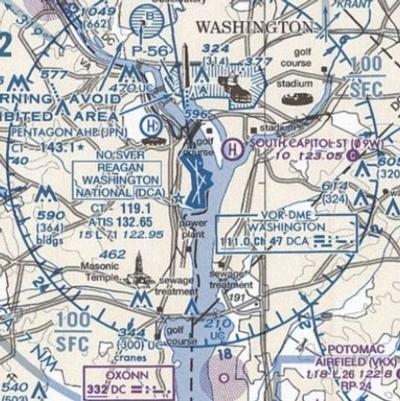Finds Scale Tipped Disproportionately Towards Noise Abatement
A new study released by the Mercatus Center at George Mason University finds that most complaints about airport noise come from only a handful of people, and that the balance between noise abatement and the economic benefits of an airport has been heavily tilted towards the former.

In the report, researchers Eli Dourado and Raymond Russell say that they looked at airport noise NIMBY complaints. "Airport noise can be a nuisance, but it is also necessary for economic activity in the modern world," they write.
After an evaluation of noise complaint data from a selection of US airports to quantify opposition to airport noise, they found that "the source of airport noise complaints is highly concentrated in a few dedicated complainers.
"Airport noise policy must strike a reasonable balance between noise abatement and the economic benefits associated with noisy airplane takeoffs and landings. However, because the majority of noise complaints come from a small number of loud objectors, there is a danger that this balance has been tilted too far in the direction of noise abatement.
"We hope that increasing awareness of the lopsided distribution of noise complaints can help promote noise standards that strike an appropriate balance and facilitate the advancement of faster and cheaper commercial flight."
The researchers found, for example, that a very small number of people account for a disproportionately high share of the total number of noise complaints. The cite data from 2015 which shows that 6,852 of the 8,760 complaints submitted to Ronald Reagan Washington National Airport originated from one residence in the affluent Foxhall neighborhood of northwest Washington, DC.

The residents of that particular house called Reagan National to express irritation about aircraft noise an average of almost 19 times per day during 2015. Other major airports report similar trends. In Seattle’s detailed call-by-call lists, one individual complains so frequently that her grievances are not transcribed in full but simply tallied at the end of the month. While airport employees provide summaries of other calls, the description of this particular individual’s calls is, “Same complaint over and over. Records a/c flying over.”
The analysts say that there are worrisome signs that "this small, frustrated minority of citizens is affecting aviation policy. In recent decades, the FAA has imposed progressively more stringent noise standards on aircraft operating in US airspace. While noise abatement is desirable, it can have significant costs—particularly on the fuel efficiency of aircraft—resulting not only in higher carbon emissions but also in higher ticket prices.
"It is troubling that a tiny but vocal group is potentially driving policy," the report says.
The researchers conclude that: "It would be a mistake to allow the preferences of a vocal but minuscule minority of citizens, however sympathetic their circumstances, to impede much-needed improvements in aviation. Airport noise standards are already quite strict, and they create real economic and environmental costs associated with lower aircraft fuel efficiency.
"While our analysis cannot recommend a precise noise standard, we are concerned that a handful of callers—who contact not only airports but also the FAA and congressional offices—have unduly influenced existing standards. Policymakers should be acutely aware of the distribution of calls before taking further action on airport noise."
(Image from file)
 Aero-News: Quote of the Day (11.17.25)
Aero-News: Quote of the Day (11.17.25) ANN's Daily Aero-Term (11.17.25): NonDirectional Beacon
ANN's Daily Aero-Term (11.17.25): NonDirectional Beacon NTSB Final Report: Fred L Wellman CH 750 Cruzer
NTSB Final Report: Fred L Wellman CH 750 Cruzer ANN's Daily Aero-Linx (11.17.25)
ANN's Daily Aero-Linx (11.17.25) Airborne-NextGen 11.11.25: Archer Buys Hawthorne, Joby Conforms, Stranded Astros
Airborne-NextGen 11.11.25: Archer Buys Hawthorne, Joby Conforms, Stranded Astros




